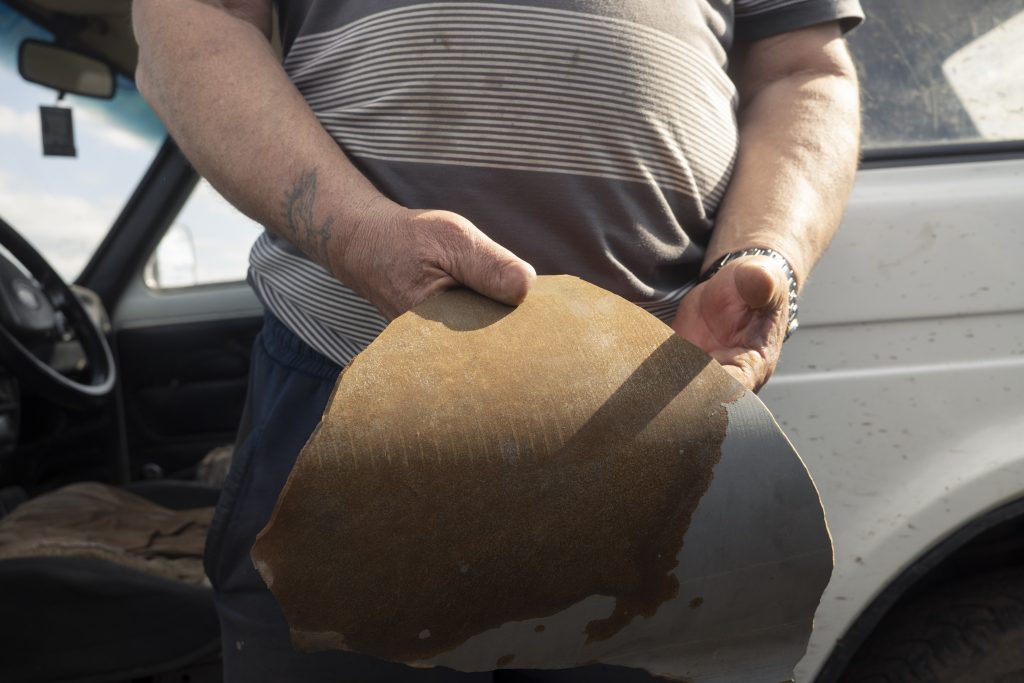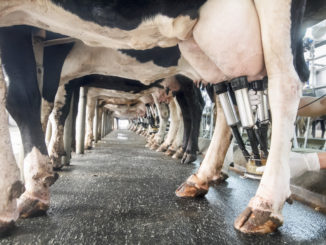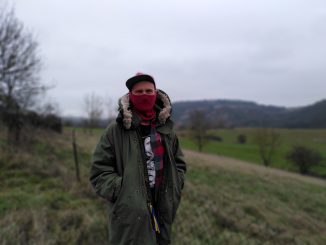
The war in Ukraine has intensified the debates about the future of agriculture in the EU. As the majority of member states scale back their ambitions for environment-friendly reforms to increase food production, Natalia Mamonova discusses whether sustainability will be sacrificed.
The war in Ukraine has made many people talk about the global food security. Russia’s attacks on Ukrainian agriculture (see satellite images of farms destruction), its blockade of the Black Sea ports, and the theft of Ukrainian grain dramatically undermined Ukrainian agricultural capacity and curtailed food export. Besides that, sanctions imposed on Russia’s financial system have impeded the export of Russian grain and fertilizer. All this has led to a sharp increase in the prices of food, feed and fertilizer worldwide and has forced many governments to prepare emergency measures to deal with the upcoming food shortages.
At the extraordinary meeting of the EU agriculture ministers on 2 March 2022, the ministers agreed that the European Commission will consider actions aimed at ensuring the food security of the EU. Measures included the temporary adjustment of the rules for the implementation of the CAP, such as the use of ecological focus areas and fallow land for the production of food and feed, as well as the use of plant protection products in these areas where such products are normally prohibited. Some EU-member states called for a much greater roll-back of the EU’s green agricultural policies. For example, in France, there have been suggestions to suspend the 4% of agricultural land set aside under the EU’s Farm to Fork strategy.
These governmental intentions have come under fire from the international academic community, green groups and progressive farm unions in Europe, who criticize the EU for sacrificing sustainable food production in favor of food security. The proposed measures contradict the principals of the Farm to Fork strategy and the European Green Deal – the main programs aimed at putting sustainability at the heart of the European food system.
A number of academics wrote an open letter to the EU-Commission insisting that “tackling the short-term shock must be done with a vision in mind of the larger-scale and longer-term threats of the climate and biodiversity crises”.
The debates on food security versus sustainability in the context of the war in Ukraine have revitalised a longstanding debate on “who will feed the world”. Advocates of the globalised neoliberal agri-food model – for example, The World Bank – argue that large-scale industrial agriculture is only capable of feeding a growing world population. This perspective argues that food security should be achieved by increasing production volumes. Opponents – such as La Via Campesina – criticize the social, economic and environmental costs of industrial agriculture and offer a sustainable solution in the form of food sovereignty and localized food practices. They argue that small-scale farming is not only a sustainable alternative to industrial agriculture, but also more resilient at times of crisis.
The European Coordination of La Via Campesina and its allies argue that the moment has come to transform the European agri-food model into a more autonomous and sustainable agroecological system. The war in Ukraine has exposed the systemic fragility of industrial agriculture and its dependence on fossil fuels and fertilizers (both major Russian exports) Likewise, livestock farming is massively dependent on imports of cereals and oilseeds: non-human consumption – animal feed, biofuels and other – account for over half of all grain consumed globally. The movement suggests solving these problems through public policy instruments (such as the Farm to Fork strategy), market regulation and by challenging the dogma of free trade that threatens food sovereignty and environment.
However, the lobby of agribusiness and their political allies is very strong. Corporate Europe Observatory has recently issued a report that exposes key lobbying tactics used by the pesticide industry against the Farm to Fork strategy. These tactics range from producing partial “impact studies”, mobilizing third countries (especially the US) to put pressure on the EU, to distracting decision makers with voluntary commitments or false solutions.
Moreover, some corporations – like Bayer (Monsanto) – lobby for the deregulation of GM seeds and push digital tools for farmers. In Ukraine, multinational corporations are also using the food crisis to spread their influence. Thus, Bayer’ seed plant in the Zhytomyr region has donated 140 tons of Monsanto corn seeds to 150 farms as part of its charitable activities during the war.
Although the European Commission seems to remain committed to its sustainability objectives – it has recently announced a legislative process to to reduce the use and risk of pesticides in the EU – , its main goal is to maintain the status quo. In the adopted Communication on “Safeguarding food security and reinforcing the resilience of food systems”, the Commission made it clear that the food security crisis is the result of the Russian invasion, market speculation, as well as the pandemic and climate change. The authors did not acknowledge the fragility and unsustainability of the globalised neoliberal agricultural model and aim to solve the crisis within the neoliberal framework. The solutions included enhancing international free trade (see the critique here), providing financial support to consumers, farmers and developing countries, and allowing farmers to grow crops for food and feed on fallow land that is part of Ecological Focus Areas in 2022. The EU has, thus, moved further away from facilitating the necessary transition towards more autonomous and resilient agroecological models.
Moreover, additional less-green amendments could well be introduced after the Czech Republic takes over the rotating EU Council presidency in July 2022. When presenting the priorities of the upcoming Czech Presidency at the session “Peace and prosperity for all of Europe – an impossible dream?” Štěpán Černý (director-general for European Affairs for the Czech government) said: “Let’s maybe forget for a while on [the] Farm to Fork strategy […] for a couple of months, and let’s mobilize the foodstuff production as much as we can”. While it should be neutral throughout its presidency, Prague’s view that the EU must not strictly adhere to the Farm to Fork and Green Deal’s vision is also likely to influence the Council’s work.
Overall, the war in Ukraine has made the internal contradictions in the globalised neoliberal agri-food even more apparent that before. The forces of business-as-usual and their institutional supporters are intent on rolling back the small environmental progress made in recent years. However the fragility, unfairness and contradictions in this agri-food system are clearer now than ever before too. How the debate pans out will impact many millions of people and the state of our environment in the years ahead.
More
War in Ukraine and World Food – What options does the international community have?
Ukraine | the Green Road of Ecovillages – Communities that Protect
Commission Adopts Regulation to Half Pesticide Use by 2030 – But More Work Needed
Nature Restoration Law: A Chance for the EU to Make Good on the Green Deal
CAP Strategic Plans and Food Security: Fallow Lands, Feeds, and Transitioning the Livestock Industry
More by Natalia Mamonova
Quietness & Adaptability – Ukrainian Peasants’ Responses to Land Grabbing & Agribusiness Expansion






1 Trackback / Pingback
Comments are closed.